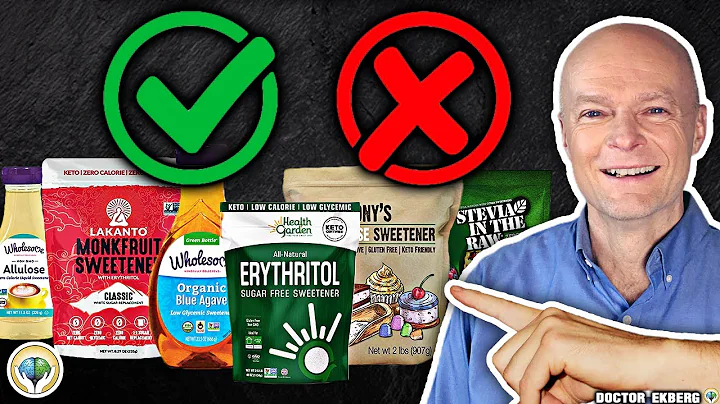Erythritol has a sweet taste similar to sugar, contains almost no calories, and has zero impact on blood sugar and insulin levels. Plus, it doesn't damage your teeth the way sugar does.
So, is this sweetener really suitable for us? Next we analyze it in detail.

What is erythritol?
Erythritol is a sugar alcohol extracted from sugar and starch in plants, mostly from corn. It is most commonly used as a low-calorie sugar-free sweetener in food and beverages.
Ordinary table sugar contains 4 calories per gram, while 1 gram of erythritol only contains 0.2 calories, which means that erythritol contains less than 6% of the calories of white sugar, and the sweetness of erythritol is about 60% to 70% of sucrose.

Benefits of Erythritol
Erythritol has a variety of health benefits compared to regular table sugar.
1. Zero glycemic index
Erythritol has no effect on blood sugar and does not trigger an insulin response. In addition, more than 90% of erythritol consumed by the human body is resistant to gastrointestinal digestion and can be excreted through urine after absorption. This is different from some glycemic sweeteners such as maltitol .
2. Very sweet, not bitter
Currently we have found that some sweeteners do not taste like sugar and taste a bit bitter. Stevia is a typical example. Many people don't like the strong bitter taste, while erythritol has a sweet taste without the bitter taste.

3. Well Tolerated
Sugar alcohols can sometimes cause side effects such as bloating, gas, and other symptoms of gastrointestinal discomfort, often depending on individual circumstances and specific dosage. Fortunately, the body seems to tolerate erythritol better than other sugar alcohols.
4. Good for teeth
When we consume ordinary sugar, the bacteria in the mouth (such as Streptococcus ) will break it down into lactic acid, which will make the pH value of the mouth more acidic, which will gradually damage it over time. Our enamel .
At the same time, these bacteria will use sugar to produce sticky substances to form dental plaque around the teeth, and dental plaque is a precursor to tooth decay . Therefore, excessive intake of refined sugar is closely related to tooth decay.
Erythritol can avoid these situations and has some good effects on teeth.

5. Relatively stable when exposed to heat
Erythritol exhibits good stability at temperatures up to 180°C. Due to this property of erythritol, it is a good choice for low carbohydrate or sugar-free baking. choose.
Potential Disadvantages of Erythritol
While there are many benefits to this sugar alcohol, there are some drawbacks to be aware of. The most noteworthy one is that it has a relatively large impact on irritable bowel syndrome .
Generally speaking, patients with irritable bowel syndrome need to follow the FODMAP diet. This dietary pattern represents "fermentable oligosaccharides, disaccharides , monosaccharides and polyols ".
These four compounds are short-chain carbohydrates that we cannot fully digest, so they ferment in the intestines.
When these carbohydrates are consumed, they may cause symptoms such as bloating, gas, cramping, alternating episodes of diarrhea or constipation.

Unfortunately, erythritol is a polyol and is one of the FODMAP dietary sources. For this reason, erythritol may not be suitable for people with irritable bowel syndrome .
Overview
If you want to reduce sugar intake and erythritol is not suitable, there are other options, such as monk fruit, stevia, etc.
#HealthTruthPlan##HealthKnowledgePopular##婷 Zero Zero Plan##Southern Health#









![Should You STOP Erythritol? [Erythritol causing Heart Attacks?] - DayDayNews](https://i.ytimg.com/vi/U0p-EOHv6gY/hq720.jpg?sqp=-oaymwEcCNAFEJQDSFXyq4qpAw4IARUAAIhCGAFwAcABBg==&rs=AOn4CLCZdfBAC_nQsBchhQUhXRCOEUbqjw)











